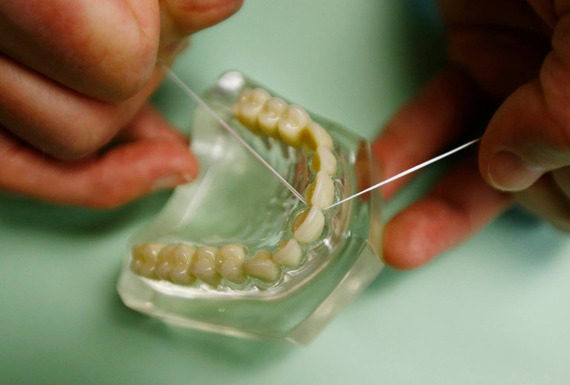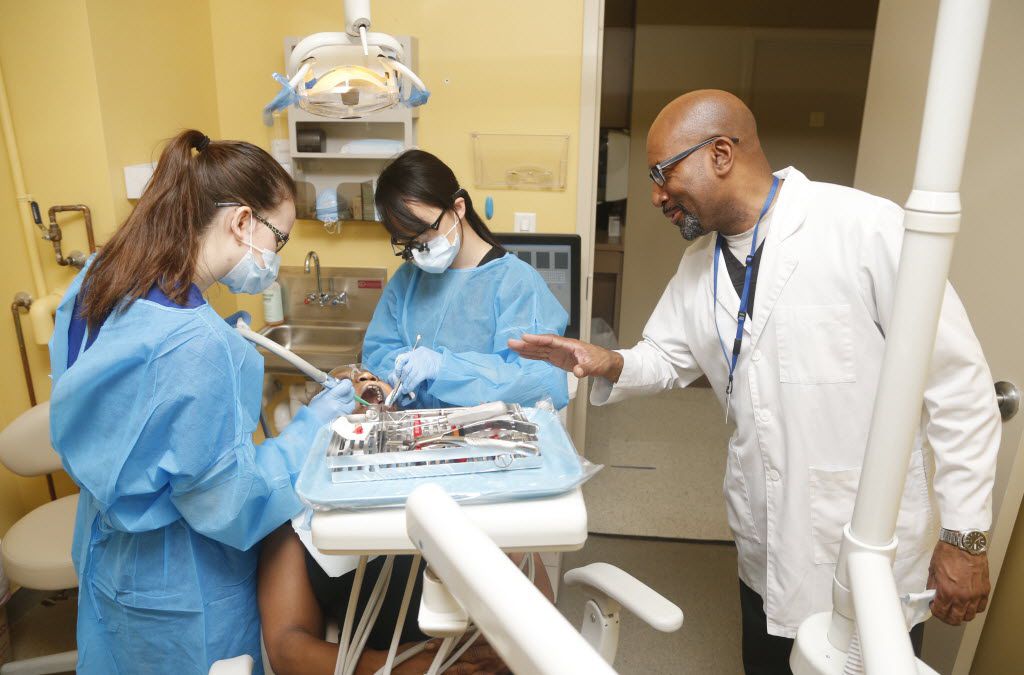Understanding the Cash Flow Streams in a DSO Affiliation
In recent years, numerous accomplished practice owners have reached out to us, expressing a desire for an improved work-life balance and seeking assistance with the managerial aspects of their businesses to devote more time to clinical dentistry in turn, their overall happiness. Regrettably, many of these professionals have adjusted their lifestyles to their earnings and are reluctant to reduce their income, leading them to press on until they reach a state of burnout and dissatisfaction. I’m here to highlight that solutions exist NOW and I want to point out several overlooked factors that could render an affiliation with a DSO considerably more appealing due to your yearly income post affiliation being more than you probably suspect. Affiliating with a DSO isn’t solely about just the financial gains at only the time of sale. Let’s delve into some of the cash flow streams you need to consider when affiliating with a DSO.
General Overview – There are four cash flow streams in a DSO affiliation:
- Cash at closing; typically, 60% to 80% of the enterprise value determined.
- Associate Compensation; generally, 30% of your personal collections.
- The potential upside of your equity that you rolled with the DSO; estimated to be 2x to 3x.
- Profit distributions; depending on the type of equity you roll, you could receive 20% to 40% of the distributable EBITDA every quarter. This is a missing link that almost everyone overlooks.
Cash at closing
Most DSOs are looking to be the majority equity holder where they purchase 60% to 80% of your business and the seller retains to 20% to 40% of equity. Generally, a buyer/DSO would prefer to allow a seller to roll as much equity as possible as it mitigates risk and allows them to stay more cash-liquid to purchase more practice opportunities. If it is determined that your business value is $4M, you should expect to be paid 60% ($2.4M) to 80% (3.2M) in cash at closing. Why a seller would roll 40% equity as opposed to 20% equity varies but it is mostly narrowed down to two considerations:
- How much longer do you plan on practicing? If you plan on practicing for more than 5 years then considering a larger equity roll may make sense for you as you could go through multiple recapitalization cycles with your DSO.
- What is your appetite for risk? A DSO buyer will tell you everything you want to hear and how great their equity is but in reality, we tell all our clients to treat the equity rolled as “poker money” as you could get a huge return, or you could lose it all if the DSO goes belly up which is why choosing a reputable DSO with past performance is so important. Oftentimes, your best offer from a monetary perspective may not be when you consider the full picture.
Associate Compensation
If you are a major producer in the practice, you should expect to have to work back for three to five years post-affiliation. During that time period, you should expect to make 30% of your adjusted collections.
If you collected 1.25M as a provider, you would make 30% of this which is $375,000.00. Almost always, it makes more sense to take as little compensation as possible for associate compensation as that will factor into your EBITDA and ultimately your business evaluation. Let me explain.
If your provider collections amount to $1.25 million and you receive a 30% compensation rate, your earnings would be $375,000. However, many try to negotiate a higher percentage of compensation (E.g. 35%) as is commonly thought to benefit them and result in more overall cash in their pocket. If the same provider collections of $1.25M is run at 35%, your associate compensation then becomes $437,500. The difference between $437,500 and $375,000 is $62,500 in additional yearly compensation which sounds great at face value but what you are forgetting is that your EBITDA would also be reduced by $62,500.00 and if you are being paid a 6x of your EBITDA then you would be reducing your enterprise value by $375k (6x of $62,500) using this example.
3-year associate comp at 35% = $1,312,500
3-year associate comp at 30% = $1,125,000
Difference of $187,500 in associate compensation over 3 years.
As you will see when you run the math, taking 30% compensation instead of 35% will net you $187,500 over a three-year period as the increase in enterprise value is greater than the associate compensation at a higher percentage.
Understanding the Potential Upside of Your Equity
DSOs typically present two distinct equity options, each with its own set of advantages and disadvantages. We will explore the nuances and perform an analysis of the financial implications inherent to each model.
a) HoldCo Equity (AKA Parent Equity)
Initial Scenario:
Original Investment: Dr. Smith rolls over $500,000 of equity into the DSO’s HoldCo at the time of selling his dental practice.
HoldCo Portfolio:
Initially, the HoldCo, through its DSO, owns 10 dental practices, including Dr. Smith’s, with a combined annual EBITDA of $2 million.
Over five years, the DSO strategically acquires 10 additional practices, doubling the number to 20. These acquisitions increase the combined annual EBITDA to $6 million.
Valuation Increase:
Assuming a valuation multiple of 6x EBITDA at the time of Dr. Smith’s sale, the initial valuation of the HoldCo (and thus the DSO) was $12 million (6 x $2 million).
Revised Valuation: After the growth strategies are implemented, the new valuation at a similar multiple would be $36 million (6 x $6 million), reflecting the improved profitability and scale.
Impact on Dr. Smith’s Investment:
Initial Stake: Dr. Smith’s $500,000 represented a 4.17% equity stake in the HoldCo ($500,000 / $12 million).
Value of Stake After Growth: With the HoldCo now valued at $36 million, Dr. Smith’s 4.17% equity stake is now worth $1.5 million ($36 million * 4.17%).
Conclusion:
Dr. Smith’s initial $500,000 investment in the HoldCo equity has tripled to $1.5 million due to the DSO’s successful execution of strategic growth initiatives, including acquisitions, operational efficiencies, and the introduction of high-margin services. This example illustrates the potential for significant value appreciation through equity rollover in strategic transactions, particularly in growth-oriented industries like dental services.
b) Joint Venture Equity (AKA JV or Site Level Equity)
Initial Scenario:
Dr. Smith’s EBITDA at the time of a sale/affiliation is $400,000 and he was paid a 5.5x of his EBITDA, which gives us an enterprise valuation of $2.2M. Of that 2.2M purchase price, Dr. Smith elected to roll 25% equity in the JV. 25% of $2.2M is $550,000.00.
Valuation Increase:
Let’s then fast forward two years post-affiliation and now Dr. Smith’s EBITDA is $475,000.00; an increase of $75,000 and the DSO decides to go to market and they sell for 13x of their global EBITDA. Dr. Smith’s practice/group would now be valued at $6,175,000 (13 x $475,000). If Dr. Smith’s equity roll was 25% then he would see 25% of the $6,175,000 which is $1,543,750.
Impact on Dr. Smith’s Investment:
In this scenario, the $550,000 he originally invested got a 2.8x return to net him an additional $993,750.
*Disclaimer: There are various different structures from DSOs on how you will get paid on any upside of your equity. The example above is what we typically see but it all varies per DSO.
Profit Distributions
In my experience, the most neglected aspect by sellers unfamiliar with the process is the potential for profit distributions when considering an affiliation with a Dental Support Organization (DSO) that offers JV equity. For instance, if you maintain a 25% equity stake in the JV, you’re generally entitled to 25% of the practice’s profits after deducting the DSO’s management fees and any capital expenditures.
To put this into perspective, imagine the practice’s distributable EBITDA (post-management fees and capital expenditures) amounts to $400,000 for the year. Holding a 25% JV equity stake would entitle you to $100,000 (25% of $400k) of this total. This distribution is in addition to any salary received as an associate. This crucial detail is frequently overlooked by many sellers when calculating their potential annual income.
Conclusion
If this article hits “home” and you are looking for a solution, let’s discuss your options as there is so much more to an affiliation with a DSO than anyone knows at face value. This is just the tip of the iceberg.










